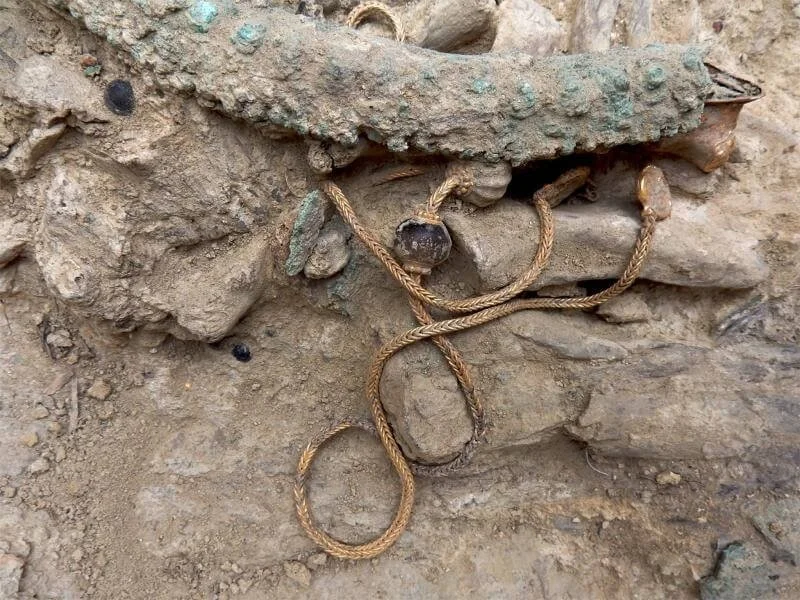BY THE ARCHAEOLOGIST EDITOR GROUP
Can the ideas of the past advance your career? In response, Patrick Kidd, dean of a prestigious business school in Madrid, offers a primer written by The Times of London. Kidd advises "future tycoons" to put down books on modern human resource management and instead study classical philosophy. "The timeless principles of Aristotle and Cicero serve as the cornerstone of a successful career. Everyone who wants to be truly successful at work can better prepare themselves by following these guidelines, "he claims. This is a beginner's manual based on Greek and Latin wisdom for people who do not have the time to sift through ancient books but nevertheless wish to achieve Since, in the words of Socrates, "I know one thing, that I know nothing,"
1. "A great book is like a great evil."
The poet and epigrammatist Callimachus, from Alexandria, is credited with coming up with the saying. He lived from 310 to 240 BC. It is thought to be a critique of authors of lengthy epic poems who failed to emulate Homer and implies that "a fat book is a tremendous evil." Today, it can be utilized in the workplace by someone who needs to justify, for instance, why it took them four weeks to prepare a three-page report.
2. "Accipe quam primum, brevis est occasio lucri."
Take advantage of the opportunity to win because it won't wait long for you, wrote the Roman poet and epigrammatist Marcus Valerius Martialis in one of his 12 books of epigrams. Because the Roman poet essentially encapsulated the idea of predatory capitalism in today's terms in just seven words, Kidd wrote of him, "He would tweet in surprise today."
3. "Merses profundo, evenit pulchrior"
One may roughly translate the Horace remark as "One must plunge deep to see something more beautiful come to light." The adage could be applied to modern life in the sense that you should dare if you want to succeed.
4. "Aièn Aristeein"
It refers to "ever excelling" and being superior to others. It is a Homeric term that conveys the deeply ingrained yearning for unquestionable superiority and personal distinction among people of the Homeric period. To constantly be first and finest is what it means. According to legend, Alexander the Great kept a copy of Homer's "Iliad" under his pillow as he slept so he could learn from it as he planned his military operations.
This particular piece of advice appears to have been provided by Peleus to his son Achilles before he went to Troy. Hippolochus offered the same counsel to his son Glaucus, who was in charge of the Lycians and a rival of the Achaeans. Glaucus boasted that his ancestors had always encouraged him to be better than others when he subsequently encountered the Greek Diomedes outside the walls of Troy.
But Diomedes argued that their grandfathers were friends and offered to trade armor as a peace offering. Aedes Telamonius eventually killed Glaucus on the battlefield, demonstrating that boasting about one's abilities does not protect them. In the Greek world, this aphorism came to represent the fundamental moral standard.
Many outstanding accomplishments, both individual and collective, can be attributed to this principle. This adage, however, was also a major contributor to rivalry, division, and uncontrolled ambition.
5. "If"
Invading the Peloponnese in the 4th century B.C., Philip II of Macedonia wrote to the Spartans to inquire "if they would embrace him as a friend or as an enemy." The Peloponnesians, according to Plutarch, neutrally retorted, "that they had no intention of receiving him as a friend or an adversary." When they responded, Philip became outraged and sent another message, warning them that they would become slaves forever if he won the war. He was silenced by the Spartans' succinct response: "If," which they gave without using any unnecessary words, as everyone who aspires to be successful in whatever line of work should.
6. "Education has a bitter root but a pleasant fruit."
Years of labor are worth much in the end, says the adage's purported originator, Aristotle, who did not have Spartan laconicity. Yet every successful professional should keep this proverb in mind, according to his biographer, Diogenes Laertius. Aeschylus holds a similar philosophical stance: "Knowledge comes from suffering."
7. "Omnia mea mecum porto"
The expression is, "What is mine, I carry with me." It was first used by Cicero to express Priene's preconceived assumption that wisdom and virtue were the only things required. Bias of Priene, one of the seven sages of ancient Greece, might just as easily be discussing his smartphone right now!
8. "Step away from my light."
Alexander the Great wished to meet Diogenes the Cynic when he was in Corinth in 336 BC, leading the Panhellenic Convention, according to Plutarch. The philosopher responded to his question about whether he needed anything by saying, "Stand out of my light," which roughly translates to, "Step back a little since you are blocking the sun from me." When saying goodbye, Alexander is credited with saying, "If I were Diogenes, I would gladly be Alexander." Many contemporary historians, however, question the veracity of this story and believe it to be a later invention of the Macedonian ruler. But take care—this statement might not be well received by all of your supervisors.
9. “Non quia difficilia sunt non audemus, sed quia non audemus difficilia sunt.”
This idiom, attributed to the Roman philosopher Lucius Annaeus Seneca, means: "Not that we are afraid to attempt difficult tasks. They are challenging because we are afraid to attempt them ". Liz Truss, a former British prime minister, used this passage in her resignation letter after serving just seven weeks. Perhaps the philosopher's other proverb, "The one who does not recognize his faults will not rectify them," is more appropriate: "Nam qui peccare se nescit, corrigi non vult."







